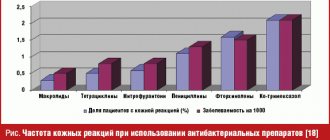Melatonin is the most common sleep drug that can be found in pharmacies around the world and as a dietary supplement: it is produced in tablets, dragees, capsules, drops, and even in the form of gummy bears. This is a natural remedy - in the sense that melatonin from medications is no different from the one produced by the body itself. And it really does trigger sleep. But does this mean that a melatonin pill will help you get rid of insomnia? It is not that simple.
Detection of melatonin
In 1958, the team of Aaron Lerner, a professor of dermatology from Yale University in the USA, managed to isolate a new compound from the epiphyses of cows, which, when introduced into the skin of a tadpole, lightened it.
The substance blocked the production of melanocyte-stimulating hormone, which is why it was called “melatonin”. Later they discovered that the open compound is synthesized in the body mainly at night. This was associated with daily periods of rest and wakefulness, and for two decades melatonin was considered only a sleep hormone that regulates human circadian rhythms.
What is melatonin for?
Melatonin is a hormone produced by the pineal gland, or “pineal gland,” a part of the brain so called because it is shaped like a small bump.
Modern science believes that melatonin appeared billions of years ago, living beings began to produce it as a substance that captured oxygen molecules in the air when there was an excess of it. Now melatonin performs many important functions in our body and is known to support circadian rhythms. The circadian rhythm is the body's internal clock. It tells the body when to sleep and when to wake up.
Melatonin production
80% of melatonin is produced by the pineal gland, a 100-125 mg pineal gland located in the brain. The remaining 20% of melatonin is produced by special cells:
- digestive tract;
- bronchi and lungs;
- kidney;
- pancreas;
- prostate and ovaries;
- retina, other organs and tissues.
Melatonin is produced even by blood cells: eosinophils and lymphocytes.
This discovery was made in 1974 by Soviet scientists Nathan Tanfelevich Raikhlin and Igor Moiseevich Kvetnoy. This “peripheral” melatonin does not affect circadian rhythms, working exclusively at the local level.
Action of melatonin
The “sleep hormone”
begins to be produced between 20 and 22 hours (earlier for early risers, later for night owls). The concentration of melatonin peaks from midnight to two o'clock in the morning, and by six to seven o'clock in the morning it drops to its minimum level.
How does melatonin work?
- Absorbs free radicals - unstable molecules that damage organs and tissues, lead to decreased immunity, the development of tumors and cardiovascular diseases.
- It is the strongest natural immunomodulator, restores damaged cells, prevents diseases, including cancer.
- It has a pronounced chronobiotic effect: it regulates daily and seasonal biorhythms.
- Promotes sleep, is responsible for calm restorative sleep, bringing natural rest.
- Regulates the functioning of the endocrine system, normalizes body temperature.
- Acts as an antidepressant and prevents the occurrence of certain mental disorders.
- Slows down the rate of aging, increases life expectancy.
What lowers melatonin levels?
- Age. After 45-50 years, the production of natural melatonin decreases.
- Light. The pineal gland can only produce melatonin in the dark. If the lights are turned on at night, the production of the hormone slows down until it stops completely. The glow of the screens of a mobile phone, tablet, laptop, computer or TV reduces the synthesis of melatonin.
- Smoking.
- Drinking alcoholic or caffeinated drinks.
- Taking nonsteroidal anti-inflammatory drugs (NSAIDs), vitamin B12, and some other medications.
What increases melatonin production?
- Lack of light at bedtime
- Calcium
- Magnesium
- Vitamin B6
- A nicotinic acid.
Melatonin: properties, deficiency symptoms, contraindications
03.01.2022
Melatonin is also called hormone or night hormone because this is when the body produces the most of it. It is responsible for the proper regulation of the human circadian rhythm. What happens when the pineal gland produces too little of this substance? Who should complement it?
What is melatonin and what are its properties?
Melatonin is a hormone produced by the pineal gland, a gland located in the head. The important thing is that this happens exclusively in the dark. That is why it is otherwise called the night hormone . The more it is released into the blood , the more you want to sleep, and eventually the person falls asleep. The highest concentration of melatonin in the body occurs between midnight and three o'clock in the morning.
It is worth knowing that it is one of the elements responsible for regulating the human biological clock. What does it mean? It is responsible for regulating the rhythms of sleep and wakefulness.
Melatonin for Sleep – When Should You Supplement?
One of the main indications for the use of melatonin is circadian rhythm disorders, as well as sleep disorders. It is recommended for people suffering from so-called primary insomnia , that is, whose quality of sleep is very poor. In addition, it is also used for sleep-wake cycle disorders. This phenomenon is called "jet lag" and refers to rapid changes in time zones, such as when traveling. It may also be useful for sleep disorders associated with shift work.
Melatonin deficiency - symptoms
Melatonin deficiency has several symptoms. If you notice some of these signs, see your doctor to determine the level hormones in your body and possibly correct it. What exactly is melatonin deficiency?
- sleep disorders
- feeling of physical exhaustion
- neuroses
- poor physical condition
- exacerbation of symptoms of concomitant diseases
However, that's not all. As it turned out, too low levels of melatonin can increase the likelihood of developing breast , prostate, and colon cancer .
Melatonin - overdose and contraindications
It is undeniable that melatonin, like any other drug, can be overdosed. It is not toxic to humans, and for this reason such cases are indeed rare, but they do happen. You should be aware that symptoms of melatonin overdose appear after taking about 8 tablets at a time.
But when should melatonin not be used at all?
- with increased sensitivity to it
- if you have liver
- if you drink alcohol
- for autoimmune diseases
Remember that pregnant, breastfeeding women and children are also not recommended to take melatonin.
Published in Medicines Premium Clinic
The use of synthetic melatonin analogues in medicine
Most often, melatonin preparations are used to treat various sleep disorders.
Conducted studies prove the effectiveness of melatonin for acute insomnia: the time to fall asleep decreases, the quality of night sleep and its duration improve. Taking melatonin is justified in case of chronobiological disorders, when a person often changes time zones or works on a shift schedule alternating night and day shifts.
“Sleep hormone” drugs cannot be used as a usual sleeping pill. They help only with failures caused by a decrease in melatonin production. In other cases there will be no effect.
Melatonin is not prescribed for:
- chronic insomnia;
- maintaining the daily secretion of your own melatonin;
- normal biological rhythms.
Dietary supplement or medicine?
There is still no consensus among doctors whether to consider melatonin a medicine or a biologically active supplement (dietary supplement).
IN THE USA
The Food and Drug Administration (FDA) has not approved it for medical use, so melatonin is sold over-the-counter as a dietary supplement.
In the European Union and Australia,
melatonin is considered a medicine, sold by prescription and used to treat insomnia in children, adolescents and people over 55 years of age.
In Russia
Dosage forms of the drug and dietary supplements have been registered and can be purchased in pharmacies and sports nutrition stores without a prescription.
Melatonin is used as an adjuvant therapy for:
- peptic ulcer of the stomach and duodenum;
- hypertension;
- Alzheimer's disease and other memory disorders;
- depression and other diseases.
Research into the pharmacological activity and effectiveness of melatonin is ongoing. To date, more than 26 thousand scientific papers have been published, each of which opens up new pages in the use of this amazing substance.
Analogs
To normalize all processes and restore health, you can use melatonin analogs that contain the same hormone. Among melatonin analogues, there are drugs that can be used to treat insomnia. They have a similar mechanism of action, but have their own characteristics.
Let's look at what melatonin analogues are, how they work, and in what cases they should be taken.
If it is not possible to buy Melatonin, analogues can be considered as an alternative. Melatonin analogues are natural stimulators of sleep hormone production, including:
- Circadin is used to treat primary insomnia. (available by prescription only)
- Melarithm is similar in its effect to the action of melatonin, and is used for sleep disorders.
- Melarena is a sedative and adaptogenic medicine prescribed for insomnia.
- Melaxen is prescribed for insomnia in older people.
Melarithm, 3 mg, film-coated tablets, 30 pcs.
Obolenskoye, Russia
Price from 440₽
Melarena, 3 mg, film-coated tablets, 10 pcs.
STADA, Russia
Price from 207₽
Melaxen, 3 mg, film-coated tablets, 24 pcs.
Unipharm, USA
Price from 524₽
There are contraindications. Specialist consultation is required.
There are a huge number of drugs in the world that have a similar effect as the original Melatonin Evalar. They all contain the active substance, but in different dosages. In preparations containing a large dose of melatonin, it is in the form of a purified and stable form.
Such drugs are more effective than drugs containing only the sleep hormone. There are also preparations that contain only pure melatonin. If you want to save money, then buy analogues rather than melatonin.
In order to receive a drug containing a large dose of the sleep hormone, you need to buy the original drug, but do not forget to consult with your doctor before doing so.
Melatonin and COVID-19
The COVID-19 pandemic, caused by the SARS-CoV-2 virus, has forced scientists to actively study the effect of melatonin on the course of this disease. As a result, the usual “sleep regulator” began to be used in a complex of means of auxiliary therapy for COVID-19. In the fall of 2020, it was even used to treat US President Donald Trump. US
Melatonin Reviews The electronic scientific library medRxiv published a report in October 2022 on a research work in which 800 cases of severe COVID-19 were studied. It turned out that patients who initially had high levels of their own melatonin, and those who received the hormone in the form of a drug, were significantly more likely to survive in intensive care. Melatonin increased the chances of recovery, both from coronavirus and any other infection that affects the lungs.
Canada and Argentina.
The work was published in the journal Diseases in November 2022. A joint study from the University of Toronto and the Pontifical Catholic University found that the disease may be more severe in older people due to decreased levels of melatonin. Melatonin in adequate doses prevents the development of an aggressive form of COVID-19, and also supports the effect of the anti-coronavirus vaccine.
Brazil.
Data published by Melatonin Research in early 2022. Scientists from the University of Sao Paulo have proven that melatonin, which is produced by the cells of the alveoli of the lungs, becomes a barrier to coronavirus. This may be why people with high levels of melatonin do not become infected with Covid or experience the disease easily. Regina Pekelman, the author of the study, is confident that using nasal drops or a spray with melatonin is an effective means of combating COVID-19.
To enter the human body, SARS-CoV-2 viruses must bind to angiotensin-converting enzyme 2 (ACE2) receptors located on the surface of lung cells. Only by combining with ACE2 do coronaviruses enter the cell and begin to multiply, leading to disease.
Melatonin reduces the number of free ACE2 receptors, as a result, the number of connections between the virus and the enzyme is reduced, which leads to damage to a minimum number of cells, which means the coronavirus infection will occur in a mild form.
Additionally, melatonin reduces the inflammatory response at the site of virus entry and controls the immune response, preventing the development of a “cytokine storm.” And since it is the violent cytokine reaction that leads to a fatal result, its suppression increases the patient’s chances of surviving and avoiding serious complications.
In our country
sufficient scientific experience has not yet been accumulated to confirm the fact that melatonin prevents severe COVID-19, and the mechanism of action of melatonin on the human body has not yet been sufficiently studied. However, empirical evidence provides encouraging results and supports the positive effect of melatonin on the outcome of COVID-19.
Melatonin preparations are available in Russia without a prescription, but you should not take them without an in-person consultation with a doctor, either to correct sleep disorders or to prevent or treat COVID-19.
pharmachologic effect
After taking melatonin, it immediately begins to show its effect. It has hypnotic, sedative, antioxidant and adaptogenic effects. The drug is quickly absorbed into the stomach, enters the bloodstream and begins to act immediately.
It is actually a sleeping pill that exhibits its properties within 24 hours. Melatonin is produced from serotonin, but dulls the effects of the latter. The amount of melatonin produced by our body directly depends on the amount of serotonin. This means that if you don't spend much time outdoors, you may be prescribed Melatonin.
It turns out that the drug will be effective if there is a lack of the hormone in the body. At the same time, if insomnia is caused by pathologies of internal organs, then Melatonin will not help.
Publications on the topic of the month “How to overcome post-Covid syndrome”
- Lung recovery after coronavirus
- Restoring the sense of smell after coronavirus
- Restoring memory after suffering from coronavirus
- Overcoming mental disorders during post-Covid syndrome
- We are experiencing COVID. How the coronavirus pandemic affects mental functioning
- Post-Covid screening - examination after a new coronavirus infection
- How to return digestion to normal after coronavirus?
- Loss of smell due to COVID-19 - advice from an otolaryngologist
- Recommendations from a cardiologist after suffering from COVID-19
- Coronavirus turned out to be “vindictive” - what is important to know
- Post-Covid syndrome: program for diagnosis and regression of post-Covid symptoms. How to Manage Long-Term Long COVID Symptoms



